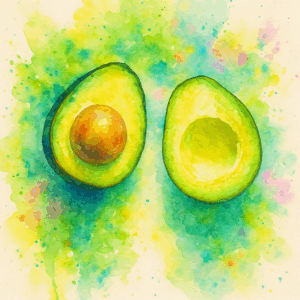Learn French with this clip from Les P’tits Bateaux. Find the full episode here. We do not own the content. The above audio sample and transcription is from Les P’tits Bateaux podcast. We do not own the content. Listen to the entire episode here. L’amour What’s opening up for you with this clip? Comment below…
Start quiz, type what you hear, then join the conversation.
Did you find this one challenging or easy? Did you hear something diffferent? What surprised you? What levels did you complete? Comment below and share what’s opening up for you with this quiz.
Learn French with this clip from Les P’tits Bateaux. Find the full episode here. We do not own the content.
The above audio sample and transcription is from Les P’tits Bateaux podcast. We do not own the content. Listen to the entire episode here.
L’amour
What’s opening up for you with this clip? Comment below with what was surprising, easy, challenging and/or interesting.
The snippet in English
Find a translation of this snippet here, how much of this did you hear?
Et puis, lorsqu’on commence à découvrir la collectivité, à la crèche par exemple, quand on est tout petit, et ensuite à l’école, maternelle et primaire, on fait plein de rencontres avec les autres,
And then, when you start to discover the community, at daycare for example, when you’re very young, and then at school, kindergarten and elementary school, you meet lots of other people.
The above translation from Deepl
What does “lorsque” mean?
lorsque = (when/whenever), slightly more formal than quand.
Before a vowel or on, it elides → lorsqu’ → lorsqu’on.
Tense tip: future after future.
Lorsqu’on arrivera, on te préviendra. (When we arrive, we’ll let you know.)
Lorsque tu appelles, il répond toujours. (Whenever you call, he always answers.)
Lorsqu’il faisait froid, on restait dedans. (When it was cold, we stayed in.)
Nuance: temporal only (not causal). Quand works in most speech; lorsque feels a bit more written.
What does “la crèche” mean?
la crèche = daycare/nursery for babies–toddlers (also Nativity scene at Christmas).
Everyday France: mettre son enfant à la crèche (to put one’s child in daycare), crèche municipale/privée (public/private daycare), avoir une place en crèche (to get a spot—often competitive).
What does “maternelle” mean?
maternelle (preschool/kindergarten; maternal).
School: la maternelle = French preschool (ages 3–6): petite section, moyenne section, grande section.
Adj.: instinct maternel/le langue maternelle (maternal instinct/mother tongue).
Examples: Elle est en maternelle, en grande section. (She’s in preschool, final year.) On parle de la langue maternelle des élèves. (We’re talking about the students’ mother tongue.)
What does “plein de” mean?
plein de (lots of / plenty of). Informal quantifier before a noun; swap for beaucoup de in formal contexts.
Agreement: as a quantifier, usually invariable → plein de monde, plein d’idées. As an adjective “full (of)”, it agrees → une tasse pleine de sucre (a cup full of sugar).
Examples: Il y avait plein de monde. (There were lots of people.) J’ai plein d’idées. (I have plenty of ideas.) On a fait plein de trucs. (We did lots of things.)
Les P’tits Bateaux Podcast
Official synopsis: Les enfants posent des questions, des spécialistes leur répondent. Jeunes (et moins jeunes !) peuvent poser toutes les questions possibles et imaginables directement par message vocal via franceinter.fr, sauf pendant les vacances.
I recently discovered this podcast from InterFrance and love it. It’s kids posing questions and the host brings in experts to explain. And it’s aimed at young French kids, not French learners. That’s my favorite kind of content. Being for French kids is what makes it so good.
You’ve got real people (a kid, a host, and an expert), all speaking real French — no AI generated stuff here. The kid asks a question, and then an expert explains it in short, clear language. There’s a ton of repetition, natural turns of phrase, and just enough challenge to keep your ears working.
And because it’s meant for French-speaking kids, the adults naturally explain things simply but not condescendingly. You get exposed to rhythm, tone, interjections (bah, ben, alors), and full sentences — but also some real dialogue dynamics. And that’s gold if you’re trying to move from textbook filler to actually speaking and thinking in French.
Improving your French Listening Comprehension with Podcasts
On this site, fast spoken French is finally accessible to all levels. The tool break podcasts into short clips each set to transcription fill-in-the-blank practice. My favorite practice in class is always dictées. While they can seem overwhelming at first, the confidence boost and skills payoff for doing the work pays off. They’re perfect for anyone at any level, from advanced students to those just starting.
We use podcasts and our practice exercises to make it possible for anyone, anywhere to immerse in French with fun and ease. Join us and enjoy French, one short clip at a time. Let’s learn together!
Make the most of the site:
- Daily Podcast Listening: Start your day with a French podcast from our collection. Choose episodes that align with your interests to keep it engaging.
- Active Listening Practice: As you listen, try to pick out key phrases and vocabulary. Use our daily quizzes to test your understanding and reinforce learning.
- Repeat and Shadow: Listen to the same podcast segment multiple times. Try to mimic the pronunciation and intonation to improve your spoken French.
- Note-taking: Jot down new words or phrases you encounter. Review these notes regularly to enhance vocabulary retention.
- Reflect and Respond: After each episode, summarize the main points in French, either in writing or aloud. This helps in consolidating your learning and improving your expressive skills.
- Read More:
- True Beginner or A1 Learners: discover tips learning with podcasts at an introductory level.
- Discover all the podcast clips on FrenchIRL organized by level.
- Top Tips: Here’s how I make the most of my own site.
I created the French In Real Life project because I wanted to understand more than just my teacher and youtubers who cater to learners. I wanted to understand the French I hear in France. I hope you can benefit as much as I have. Become a supporting member for access to all clips.
What’s opening up for you?
Comment below with what’s opening up for you with this clip. What do you love about this? What was challenging? What was easy? Share your learning progress below!
Learn French with this clip from Les P’tits Bateaux. Find the full episode here. We do not own the content. The above audio sample and transcription is from Les P’tits Bateaux podcast. We do not own the content. Listen to the entire episode here. L’amour What’s opening up for you with this clip? Comment below…
Start quiz, type what you hear, then join the conversation.
Did you find this one challenging or easy? Did you hear something diffferent? What surprised you? What levels did you complete? Comment below and share what’s opening up for you with this quiz.








